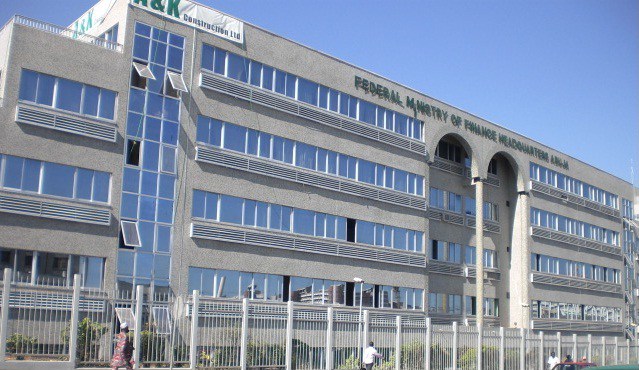Banking
AfDB, European Investment Bank Give $70m to Development Bank of Nigeria

By Modupe Gbadeyanka
The newly established financial institution, Development Bank of Nigeria (DBN) has received a boost of $70 million from the duo of African Development Bank (AfDB) and European Investment Bank (EIB).
A statement issued on Thursday by EIB explained that the equity stake was to strengthen lending for business and agriculture investment in the Africa’s largest economy, which is working hard to diversify its economy and falling into a recession in the second quarter of 2016.
It was disclosed that EIB was providing $20 million, while the AfDB is putting down the remaining $50 million.
DBN was established by the Federal Government of Nigeria to address financing challenges hindering private sector investment in the country. The Bank is called to play an important and catalytic role in providing funding and risk sharing facilities to micro, small and medium enterprises as well as small corporates.
“The Development Bank of Nigeria will overcome the funding gap in the micro-, small- and medium-scale enterprises space and help businesses unlock opportunities across Nigeria.
“DBN’s ambition is strengthened by the financial and technical support of international partners, including the European Investment Bank and African Development Bank.
“The new institution builds on international experience and uses a business model that has demonstrated proven success to enhance private-sector investment across Africa and around the world where other financing options are inadequate or absent,” said Tony Okpanachi, Managing Director of the Development Bank of Nigeria.
“Private sector businesses are critical to the development of the Nigerian economy as they possess huge potential for employment generation and output diversification.
“Nevertheless, there has been under-performance of these businesses and this has undermined their contribution to economic growth.
“Among the issues affecting their performance, the shortage of finance, particularly investment finance, occupies a very central position.
“DBN is expected to contribute to mobilizing significant long-term financing to an important yet underserved sector with high development potential,” said Stefan Nalletamby, Director of the Financial Sector Development Department at the African Development Bank.
“New private sector investment is crucial to create jobs and enable business to expand and limited access to long-term financing holds back economic growth. The European Investment Bank is pleased to support the new Development Bank of Nigeria to strengthen private-sector investment in Africa’s largest economy.
“We look forward to continued close cooperation with Nigerian and international partners to ensure that once fully operational the new Development Bank of Nigeria can help harness the country’s economic potential,” said Ambroise Fayolle, Vice-President of the European Investment Bank (EIB).
“The European Union is committed to supporting private-sector investment in Nigeria. The new backing for the Development Bank of Nigeria by both the European Investment Bank, the bank of the European Union and the African Development Bank, with 13 EU member state shareholders, will make a clear contribution to tackling the lack of access to credit by entrepreneurs and businesses across the country.
“With more investment, we hope to promote a vibrant economy and stimulate growth, employment and increase opportunities, especially for youth,” said Ambassador Ketil Karlsen, Head of the European Union Delegation to Nigeria and the Economic Community of West African States (ECOWAS).
Addressing the investment gap holding back private-sector investment
At present, new investment essential for companies to expand and create jobs is hindered by limited access to commercial banks.
It is estimated by the Development Bank of Nigeria that only 5 percent of the 37 million entrepreneurs and small businesses in Nigeria that contribute to 50 percent of GDP can access credit in the financial system.
Building on broad international support
Other international financial institutions including the World Bank, Germany’s KfW and the French Agence française de développement (AFD) will also support the new bank alongside backing from the Federal Government of Nigeria.
Banking
Banks Risk N150m Fine for Giving Hawkers New Naira Notes

By Modupe Gbadeyanka
Any bank caught supplying minted Naira notes to currency hawkers will have to pay a fine of N150 million, the Central Bank of Nigeria (CBN) has warned.
In a circular issued over the weekend by the acting Director of Currency Operations Department of the central bank, Solaja Olayemi, it was stated that it was becoming embarrassing that new banknotes are hawked at social events when most Nigerians are unable to get cash from Automated Teller Machines (ATMs) of banks or over-the-counter.
The banking system has witnessed shortage of cash for a while, with most ATMs not dispensing cash to customers despite efforts by the regulator to address the situation.
In the notice, the CBN said the distribution of freshly minted Naira notes illegally to currency hawkers will attract a penalty of N150 million per branch involved.
The apex bank disclosed that to curb the illegal practice, it has ramped up enforcement measures, including spot checks at banking halls, ATMs, and mystery shopping at locations linked to currency hawking.
“Any erring deposit money banks or financial institutions that is culpable of facilitating, aiding or abetting, by direct actions or inactions, illicit flow of mint banknotes to currency hawkers and unscrupulous economic agents that commodify Naira banknotes, shall be penalised at first instance N150 million only, per erring branch and at later instances apply the full weight of relevant provisions of BOFIA 2020,” a part of the circular stated.
The notice stressed the importance of banks strengthening their internal controls, particularly in cash management at branches and during teller operations.
Banking
CBN Insists Old, New Naira Notes Remain Valid Beyond December 31

By Aduragbemi Omiyale
The Central Bank of Nigeria (CBN) has reaffirmed that the old and new Naira notes will continue to be used for financial transactions in the country beyond December 31, 2024.
There had been rumours that the old and redesigned N200, N500, and N1,000 banknotes would no longer be legal tender from Wednesday, January 1, 2025, because the central bank would phase out the notes in compliance with a Supreme Court judgement of November 29, 2023.
But the apex bank, in a statement signed by its acting Director of Corporate Communications, Mrs Hakama Ali, on Friday, clarified that the apex court’s judgement being cited did not authorise the bank to phase out the banknotes by the end of this year.
According to her, the court allowed the CBN to leave the old and new notes to be used concurrently until it decides to gradually phase out the former.
The central bank’s spokesperson urged members of the public to disregard claims suggesting the old series of these denominations would cease to be valid at the end of this year.
She urged them to continue to accept all Naira notes for daily transactions, encouraging banks to also adopt alternative payment methods such as electronic channels to reduce the pressure on physical cash usage.
“The Central Bank of Nigeria (CBN) has observed the misinformation regarding the validity of the old N1000, N500, and N200 banknotes currently in circulation.
“In line with the bank’s previous clarifications and to offer further assurance, the CBN wishes to reiterate that the subsisting Supreme Court ruling granted on November 29, 2023, permits the concurrent circulation of all versions of the N1000, N500, and N200 denominations of the Naira indefinitely.
“For the avoidance of doubt, all versions of the naira, including the old and new designs of N1000, N500, and N200 denominations, as well as the commemorative and previous designs of the N100 denomination, remain valid and continue to be legal tender without any deadlines,” the statement noted.
Banking
Access Bank to Acquire 100% Equity in South Africa’s Bidvest

By Adedapo Adesanya
Access Bank Plc, the banking subsidiary of Access Holdings Plc, has entered into a binding agreement with South African-based Bidvest Group Limited for the acquisition of 100 per cent equity stake in Bidvest Bank Limited.
The deal for the 24-year-old South African lender is due to be completed in the second half of 2025, upon regulatory approval.
This shows Access Bank’s further expansion plans in line with goals set by its late founder, Mr Herbert Wigwe.
The agreement to acquire 100 percent stake in Bidvest Bank reflects Access Bank’s commitment to strengthening its footprint in South Africa and consolidating on its position as the continent’s gateway to global markets as it seeks to optimise the benefits of recent acquisitions and accelerate its transition towards a greater focus on efficiencies.
Bidvest Bank, founded in 2000 is a niche and profitable South African financial institution providing a diverse range of services, including corporate and business banking solutions and diverse retail banking products.
As of its year ended June 2024, Bidvest Bank reported total assets equivalent of $665million and audited profit before tax of $20million.
Upon conclusion of this acquisition, Bidvest Bank will be merged with the bank’s existing South African subsidiary to create an enlarged platform to anchor the regional growth strategy for the SADC region.
This is coming just as the bank opened a new branch in Malta as part of efforts to focus on international trade finance after obtaining a banking licence from the European Central Bank (ECB) and the Malta Financial Services Authority (MFSA).
Access Bank said the licence marks a transformative milestone in bolstering Europe-Africa trade flows.
The Maltese branch was established by Access Bank UK Limited, the subsidiary of Access Bank Plc, which is also the subsidiary of Access Holdings Plc, which is listed on the Nigerian Exchange (NGX) Limited.
-

 Feature/OPED5 years ago
Feature/OPED5 years agoDavos was Different this year
-
Travel/Tourism8 years ago
Lagos Seals Western Lodge Hotel In Ikorodu
-

 Showbiz2 years ago
Showbiz2 years agoEstranged Lover Releases Videos of Empress Njamah Bathing
-

 Banking6 years ago
Banking6 years agoSort Codes of GTBank Branches in Nigeria
-

 Economy2 years ago
Economy2 years agoSubsidy Removal: CNG at N130 Per Litre Cheaper Than Petrol—IPMAN
-

 Banking2 years ago
Banking2 years agoFirst Bank Announces Planned Downtime
-

 Sports2 years ago
Sports2 years agoHighest Paid Nigerian Footballer – How Much Do Nigerian Footballers Earn
-

 Technology4 years ago
Technology4 years agoHow To Link Your MTN, Airtel, Glo, 9mobile Lines to NIN





















